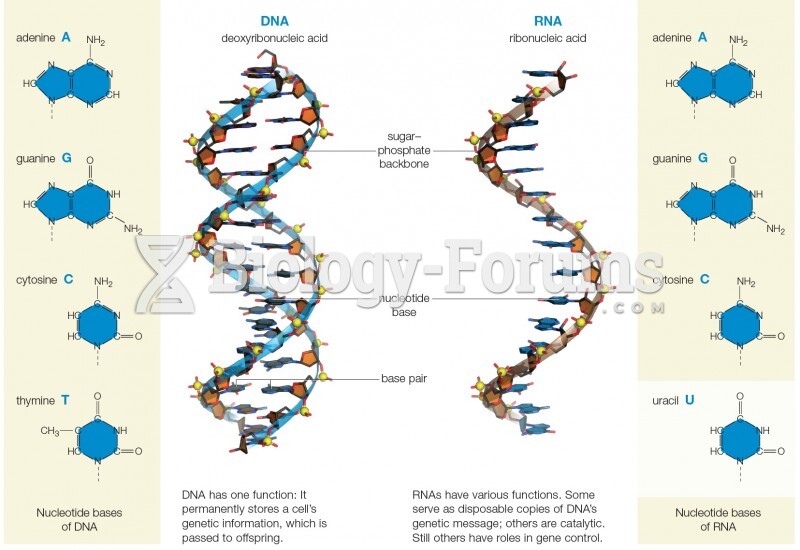|
|
|
The people with the highest levels of LDL are Mexican American males and non-Hispanic black females.
Although not all of the following muscle groups are commonly used, intramuscular injections may be given into the abdominals, biceps, calves, deltoids, gluteals, laterals, pectorals, quadriceps, trapezoids, and triceps.
The first oral chemotherapy drug for colon cancer was approved by FDA in 2001.
Blastomycosis is often misdiagnosed, resulting in tragic outcomes. It is caused by a fungus living in moist soil, in wooded areas of the United States and Canada. If inhaled, the fungus can cause mild breathing problems that may worsen and cause serious illness and even death.
It is difficult to obtain enough calcium without consuming milk or other dairy foods.







